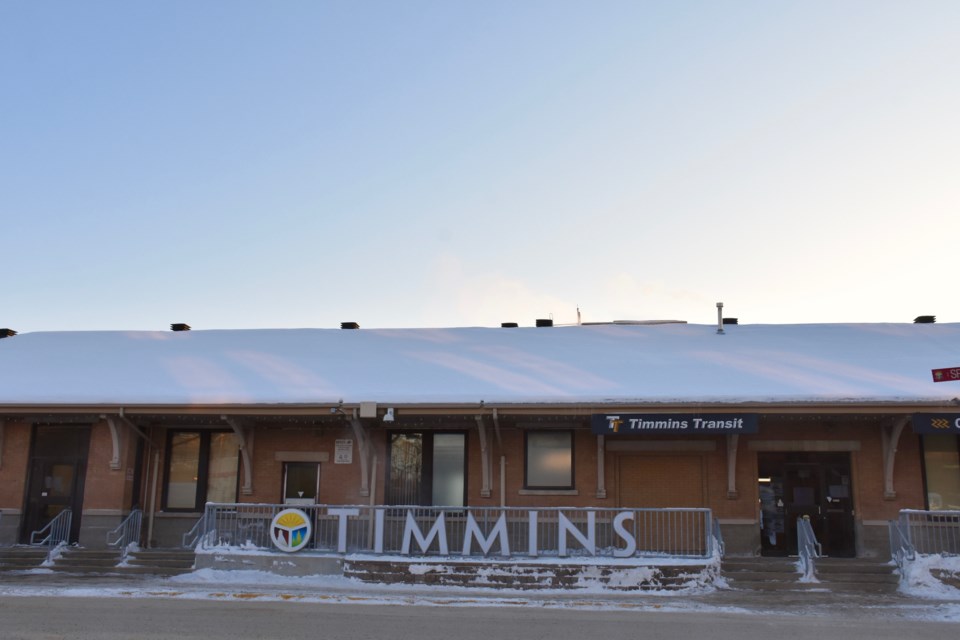Some Timmins businesses that had to close under the third provincewide shutdown say they’re feeling targeted.
Last Thursday, Premier Doug Ford announced the activation of the emergency brake for the entire province to curb the spread of COVID-19. The shutdown affects all 34 health units across Ontario and will stay in place for at least four weeks. It started April 3.
Under the changes, gyms are closed and personal care services are prohibited.
The owner of Loralee’s Hair and Beauty Salon Loralee Boucher said she was devastated when the announcement was made. The shutdown unjustly targets restaurants, gyms and salons, she said.
“It’s just not fair and why are we the ones being penalized,” Boucher said. “For the hair salon, it puts me way behind and a loss of any revenue.”
She said the government expects her to comply with the lockdown that prevents her from working one-on-one with a client, yet retail stores like Walmart, Home Depot or Costco are permitted to stay open at 25 per cent capacity.
“You never walk into my salon and there are 50 people there. You walk in and there’s 10 people within the 17-square-foot area,” Boucher said. “All personal care services like salons, spas, tattoo artists, are fully certified in sanitization. You’re safer in my salon than any big-box stores.”
April 1, Aurora's mayor Tom Mrakas released a statement saying the recent shutdown is going to hurt small businesses “who are hanging on by a thread.” Boucher, who also owns Top Shelf Lounge, agreed with Mrakas’ statement saying she’d be in total agreeance had the government shut down everything.
With two mortgages and “double the bills” depending on her sole income, Boucher said the government doesn’t provide enough funds for support. She said she’s lucky to receive CERB, $900 every two weeks, that covers one of her mortgages but it doesn't help with the rest of her bills or paying property taxes.
Doing small online draws and selling retail to stay afloat doesn’t come close to making up for the loss of revenues during the closures, Boucher said.
“This lockdown is a joke to me. It’s not fair, it doesn’t make any sense,” she said.
The owner of Timmins Gracie Jiu-Jitsu Academy Kris Ratte said the announcement of the shutdown didn’t surprise him as there had been talks about the closure.
“The timing is terrible but we just have to try and stay positive. We’ve been through two lockdowns, we made it out,” he said. “But it’ll be really nice to be able to go to sleep at night not worrying the government is going to stop us from making a living.”
Ratte’s wife Tessa Mousseau, who owns Float Eleven Yoga and Healing Arts Studio, added that each time their businesses have to close, they lose clients.
“Each time we shut our businesses down, we do whatever we can. But when they give us a go-ahead to reopen, we’re constantly re-growing our business. It’s like opening your doors for the first time, every single time,” Mousseau said.
Before the first lockdown, the academy had almost 200 members with the number dropping to about 50 members during the first closure. After the business re-opened, the owners worked hard to have 200 members again, Ratte said.
During the second shutdown in winter, they were left with about 70 members. The academy's membership had gone up again to about 140 people when the third shutdown was announced.
“Once we re-open, we have to invest even more money and time and effort into marketing and nurturing our current members and trying to get new members,” Ratte said. “It’s always harder or more expensive right after the lockdown because we have to make sure we make up for losses.”
Mousseau said they have a right to earn a living and they don’t want to continue relying on government support to keep their businesses going because some funding, such as the $60,000 CEBA loan, would have to be repaid in the future.
“It helps in the moment but the repayment in the long-term will sink a lot of businesses,” Mousseau said.
“We’re 100 per cent reliant on members who continue to pay while we’re shut down and we’re always 100 per cent reliant on rent subsidy, wage subsidy and we’re constantly looking at all the government programs,” Ratte added. “It’s unfortunate but we wouldn’t be here today if it wasn’t for the support of our members and for these government programs.”
Mousseau said businesses in the fitness and wellness industry feel very targeted as they have some of the strongest cleaning standards. She also noted that their two businesses provide services to many first responders.
“We’re often the outlet for those individuals,” Mousseau said. “They come to us to feel better: physically, emotionally, mentally. When we’re not there, those people who are on the front lines of the pandemic, they now don’t have the place they go to feel well. It's a rippling effect of when you remove services, you impact so many people."



